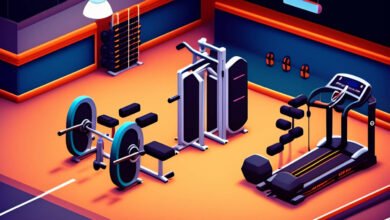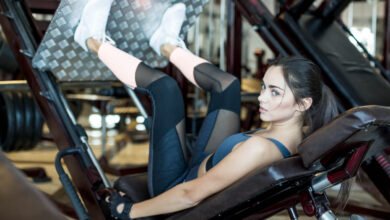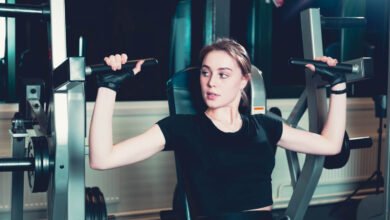Gym Nutrition Tips 101: How to Eat to Fuel Your Workouts

Welcome to our blog post on “Gym Nutrition Tips: How to Eat to Fuel Your Workouts.” Whether you’re a seasoned gym-goer or just starting your fitness journey, one thing is clear: proper nutrition plays a vital role in maximizing your workout performance and achieving your fitness goals.
In this article, we will delve into the world of gym nutrition and provide you with practical tips and advice to optimize your eating habits for peak performance.
Fueling your body with the right nutrients is essential for powering through intense workouts, enhancing endurance, promoting muscle growth, and facilitating post-exercise recovery.
But with so much information out there, it can be overwhelming to know where to start. That’s why we’re here to simplify things for you.
Throughout this article, we will cover various topics such as the importance of carbohydrates, proteins, and fats in your diet, the role of hydration in gym performance, timing your pre-workout meals, selecting appropriate foods for each workout phase, and understanding the significance of post-workout nutrition for recovery.
We will also explore how to tailor your nutrition plan to specific gym goals, discuss the potential benefits of supplementation, and highlight healthy habits that support sustainable gym nutrition.
Remember, your nutrition can be the game-changer in your fitness journey. So, let’s fuel our bodies right and unleash our true potential in the gym!
Understanding the Role of Nutrition in Gym Performance
Proper nutrition is the key to unlocking your full potential in the gym. When it comes to achieving your fitness goals and maximizing your workout performance, what you eat matters.
The Power Trio: Carbohydrates, Proteins, and Fats
To fuel your workouts effectively, it’s essential to understand the three macronutrients that play a crucial role in gym performance: carbohydrates, proteins, and fats.
Carbohydrates: The Primary Energy Source
Carbohydrates are your body’s primary source of energy, especially during high-intensity workouts.
They provide the fuel needed to power through intense exercises and maintain endurance. Foods rich in carbohydrates include whole grains, fruits, vegetables, and legumes.
Incorporating these into your diet will help ensure you have enough energy to perform at your best in the gym.
Proteins: Building Blocks for Muscles
Proteins are essential for muscle repair, growth, and recovery. They consist of amino acids, which act as the building blocks for your muscles.
Consuming an adequate amount of protein supports muscle development and helps prevent muscle breakdown.
Good sources of protein include lean meats, poultry, fish, eggs, dairy products, beans, and tofu.
Fats: Sustained Energy and Essential Nutrients
While carbohydrates are the primary energy source, fats play a critical role in providing sustained energy during longer workouts.
Healthy fats, such as those found in avocados, nuts, seeds, and olive oil, also provide essential nutrients and help maintain overall well-being.
The Importance of Hydration
In addition to proper macronutrient intake, staying hydrated is crucial for optimal gym performance.
Dehydration can lead to decreased energy levels, muscle cramps, and reduced exercise performance.
Make sure to drink water before, during, and after your workouts to replenish fluids lost through sweat.
Balancing Macronutrients for Optimal Performance
Achieving the right balance of macronutrients is key to fueling your workouts effectively.
While the exact proportions may vary depending on individual goals and preferences, a general guideline is to aim for a well-balanced diet that includes a mix of carbohydrates, proteins, and fats.
Remember, the key is not to eliminate any particular macronutrient but rather to choose high-quality sources and consume them in appropriate portions to meet your specific needs.
Pre-Workout Nutrition Strategies

Fueling your body with the right nutrients before your workout is essential for optimizing performance and getting the most out of your gym session.
Timing Your Pre-Workout Meal/Snack
Timing is crucial when it comes to pre-workout nutrition. You want to ensure that you have enough energy to perform well without feeling overly full or experiencing discomfort during exercise.
Aim to consume a meal or snack containing carbohydrates and proteins approximately 1 to 3 hours before your workout. This will allow enough time for digestion and nutrient absorption.
Choosing the Right Pre-Workout Foods
When selecting pre-workout foods, focus on those that provide a combination of carbohydrates and proteins. Here are some ideas to get you started:
1. Carbohydrate-Rich Options for Quick Energy
Carbohydrates are your body’s primary source of energy, so it’s important to include them in your pre-workout nutrition.
Opt for easily digestible carbohydrates such as fruits, whole grains, or a small serving of low-fiber cereals. These will provide a quick source of energy to fuel your workout.
2. Protein Choices for Muscle Support
Including a source of protein in your pre-workout meal or snack helps support muscle repair and growth.
Good options include Greek yogurt, cottage cheese, lean meats, or plant-based protein sources like tofu or lentils.
Aim for about 10 to 20 grams of protein in your pre-workout nutrition.
3. Healthy Fats to Provide Sustained Energy
While it’s important to keep fat intake moderate before a workout to avoid digestive discomfort, incorporating small amounts of healthy fats can provide sustained energy.
Consider adding a tablespoon of nut butter, a few slices of avocado, or a handful of nuts to your pre-workout snack.
Hydration Before Exercising
In addition to fueling your body with the right nutrients, hydrating adequately before a workout is crucial.
Aim to drink water or a sports drink 1 to 2 hours before exercise to ensure proper hydration. Remember, dehydration can negatively impact your performance and energy levels.
Sample Pre-Workout Snack Ideas
If you prefer a light snack before your workout, here are some simple and convenient options:
- Greek yogurt with sliced fruits
- Whole grain toast with nut butter
- Rice cake topped with cottage cheese and berries
- Trail mix containing nuts, seeds, and dried fruits
- A small protein smoothie with banana and almond milk
Remember, these are just ideas to get you started. Feel free to personalize your pre-workout nutrition based on your preferences and dietary needs.
By implementing these pre-workout nutrition strategies, you’ll ensure that your body has the necessary fuel to perform at its best during your gym sessions.
During-Workout Nutrition Guidelines
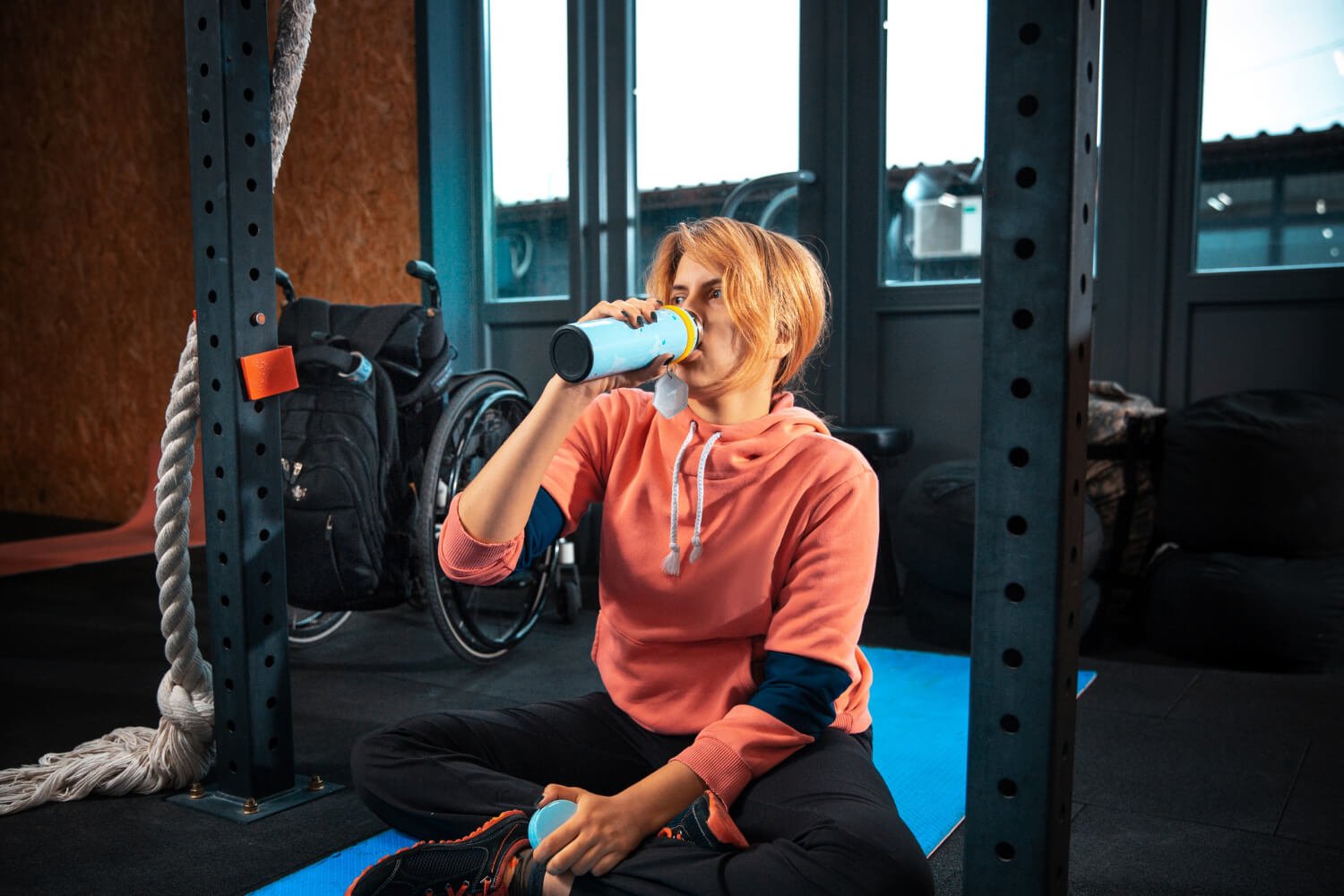
While pre-workout nutrition sets the stage for a successful workout, during-workout nutrition plays a vital role in maintaining energy levels and optimizing performance.
Importance of Staying Hydrated During Workouts
First and foremost, staying hydrated during your workout is essential.
Proper hydration helps regulate body temperature, supports nutrient transport, and prevents dehydration, which can negatively impact your performance.
Remember to sip water regularly throughout your workout, especially if you’re engaging in intense or prolonged exercise.
Consuming Carbohydrates for Endurance
During longer workouts or high-intensity training sessions, consuming carbohydrates can provide a quick source of energy and help sustain your performance.
Consider incorporating easily digestible carbohydrate-rich foods or beverages into your routine. Here are some options:
- Sports drinks: They contain electrolytes and carbohydrates, providing a quick source of fuel and aiding in hydration.
- Energy gels: These portable and convenient gels are specifically designed to provide easily digestible carbohydrates during workouts.
- Fresh fruits: Bananas, oranges, or grapes are great options as they offer natural sugars and hydration.
Incorporating Protein During Longer Workouts
If your workout extends beyond an hour or involves resistance training, it may be beneficial to include some protein in your during-workout nutrition.
Protein helps support muscle repair and recovery, preventing muscle breakdown. Here are a few protein-rich options to consider:
- Protein bars or shakes: Choose options that are easily digestible and provide a good balance of protein and carbohydrates.
- Greek yogurt: Portable and rich in protein, Greek yogurt can be a convenient snack during longer workouts.
- Hard-boiled eggs: These are a simple and protein-packed option to carry with you to the gym.
Portable and Convenient Snack Options for Refueling
For extended workouts, especially if you’re unable to take breaks for full meals, having portable and convenient snacks on hand can be a game-changer.
Consider these options for refueling and maintaining energy levels:
- Trail mix: Create your own mix with a combination of nuts, dried fruits, and seeds for a balanced snack.
- Nut butter and whole grain crackers: A small container of nut butter paired with whole grain crackers offers a satisfying and energizing snack.
- Protein balls: Made with ingredients like oats, nut butter, and protein powder, these bite-sized snacks provide a quick source of energy and protein.
Remember, during-workout nutrition should be easily digestible and not cause any discomfort during exercise.
Experiment with different options to find what works best for your body and preferences.
By implementing these during-workout nutrition guidelines, you’ll be able to maintain energy levels, optimize performance, and support muscle recovery.
Post-Workout Nutrition Essentials
After an intense workout, your body needs proper nourishment to recover, repair muscles, and replenish energy stores. The essentials of post-workout nutrition and how it can enhance your recovery process.
The Importance of Post-Workout Nutrition for Recovery
Post-workout nutrition is crucial for optimizing recovery and promoting muscle growth. During exercise, your muscles undergo stress and micro-tears.
Consuming the right nutrients after your workout helps initiate the repair process and replenish glycogen stores.
Consuming Carbohydrates and Protein for Recovery
After a workout, focus on consuming a combination of carbohydrates and protein within the first hour.
This timing allows for optimal nutrient absorption and utilization. Here’s why each nutrient is important:
- Carbohydrates: Replenish glycogen stores and provide energy for future workouts. Opt for complex carbohydrates like whole grains, sweet potatoes, or quinoa.
- Protein: Aids in muscle repair and growth. Include high-quality protein sources such as lean meats, poultry, fish, beans, or tofu.
Incorporating Essential Nutrients and Antioxidants
In addition to carbohydrates and protein, consider including essential nutrients and antioxidants in your post-workout meal or snack.
These help reduce inflammation and support overall recovery. Here are some nutrient-rich options to consider:
- Colorful fruits and vegetables: Berries, leafy greens, and citrus fruits are packed with vitamins, minerals, and antioxidants.
- Healthy fats: Add a source of healthy fats like avocados, nuts, or seeds to support nutrient absorption and provide sustained energy.
Remember to listen to your body’s hunger and fullness cues when determining portion sizes and choosing post-workout meals or snacks.
Tailor your choices to your individual preferences and dietary needs.
Tailoring Nutrition to Specific Gym Goals
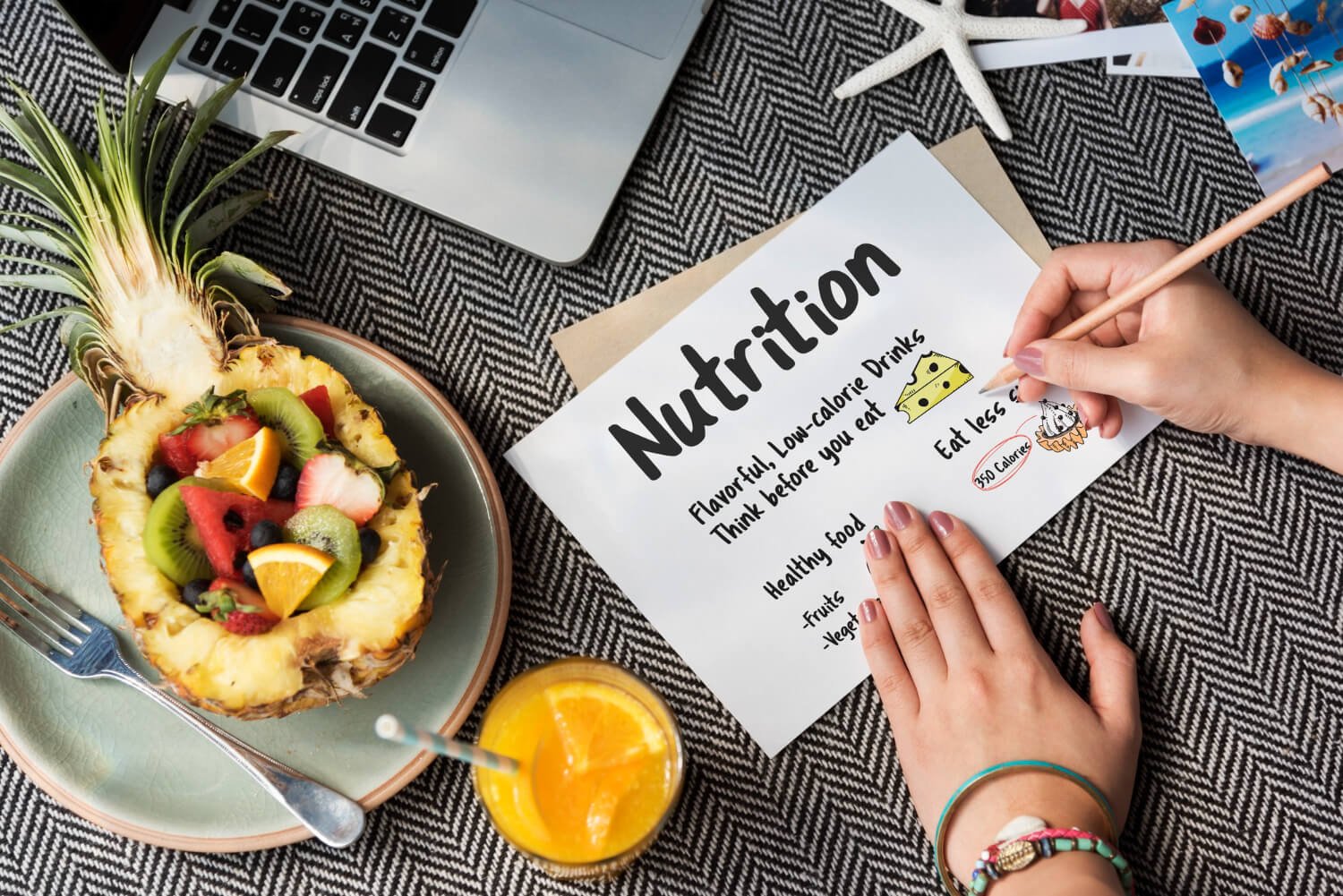
Every individual has unique gym goals, whether it’s building strength, improving endurance, or focusing on weight loss.
Nutrition Considerations for Strength Training
If your goal is to build strength and increase muscle mass, pay attention to the following nutrition aspects:
- Sufficient protein intake: Aim for a slightly higher protein intake to support muscle repair and growth.
- Caloric surplus: Consume a slight surplus of calories to provide the energy and nutrients needed for muscle development.
Fueling for Endurance and Cardiovascular Workouts
If you’re focusing on endurance activities like running, cycling, or swimming, consider the following nutrition strategies:
- Adequate carbohydrate intake: Prioritize carbohydrates to fuel your workouts and maintain energy levels.
- Hydration: Stay properly hydrated to support endurance and prevent performance decline.
Nutrition Strategies for Weight Loss and Body Composition Goals
If your goal is weight loss or improving body composition, keep the following in mind:
- Caloric deficit: Create a slight calorie deficit by consuming fewer calories than you burn to promote weight loss.
- Balanced nutrient intake: Ensure you still obtain adequate amounts of protein, carbohydrates, and healthy fats for overall health and energy.
Remember, these guidelines are general and should be adjusted based on your individual needs, preferences, and any specific dietary considerations you may have.
Consulting with a registered dietitian or nutritionist can provide personalized guidance tailored to your goals.
Supplementation for Gym Performance
Supplements are a topic of great interest in the fitness world, and many individuals wonder if they can enhance their gym performance.
Overview of Common Supplements
There is a wide variety of supplements available on the market, each claiming to improve athletic performance, increase muscle mass, or enhance recovery.
Some common supplements used for gym performance include:
- Protein powders: These supplements provide a convenient way to increase protein intake, especially for individuals who struggle to meet their protein needs through food alone.
- Creatine: It is known to enhance strength and power during high-intensity exercises, making it popular among strength trainers and athletes.
- BCAAs (Branched-Chain Amino Acids): These amino acids, particularly leucine, isoleucine, and valine, are believed to support muscle recovery and reduce muscle soreness.
Understanding When and How to Use Supplements Effectively
While supplements can have their benefits, it’s important to approach them with caution and understand their limitations.
Here are a few considerations to keep in mind:
- Assessing individual needs: Before incorporating any supplements, it’s essential to assess your specific needs, goals, and dietary habits. Supplements should complement a well-rounded diet rather than replace it.
- Quality and safety: Choose reputable brands and look for third-party testing certifications to ensure the quality and safety of the supplements you choose.
- Consulting with professionals: If you’re considering adding supplements to your regimen, it’s wise to consult with a healthcare professional or a registered dietitian who can provide personalized advice based on your unique circumstances.
Remember, supplements should never be a substitute for a balanced diet and healthy lifestyle.
While they may have their place in certain situations, focus on optimizing your nutrition and overall well-being through whole foods and sustainable habits.
Healthy Habits for Sustainable Gym Nutrition
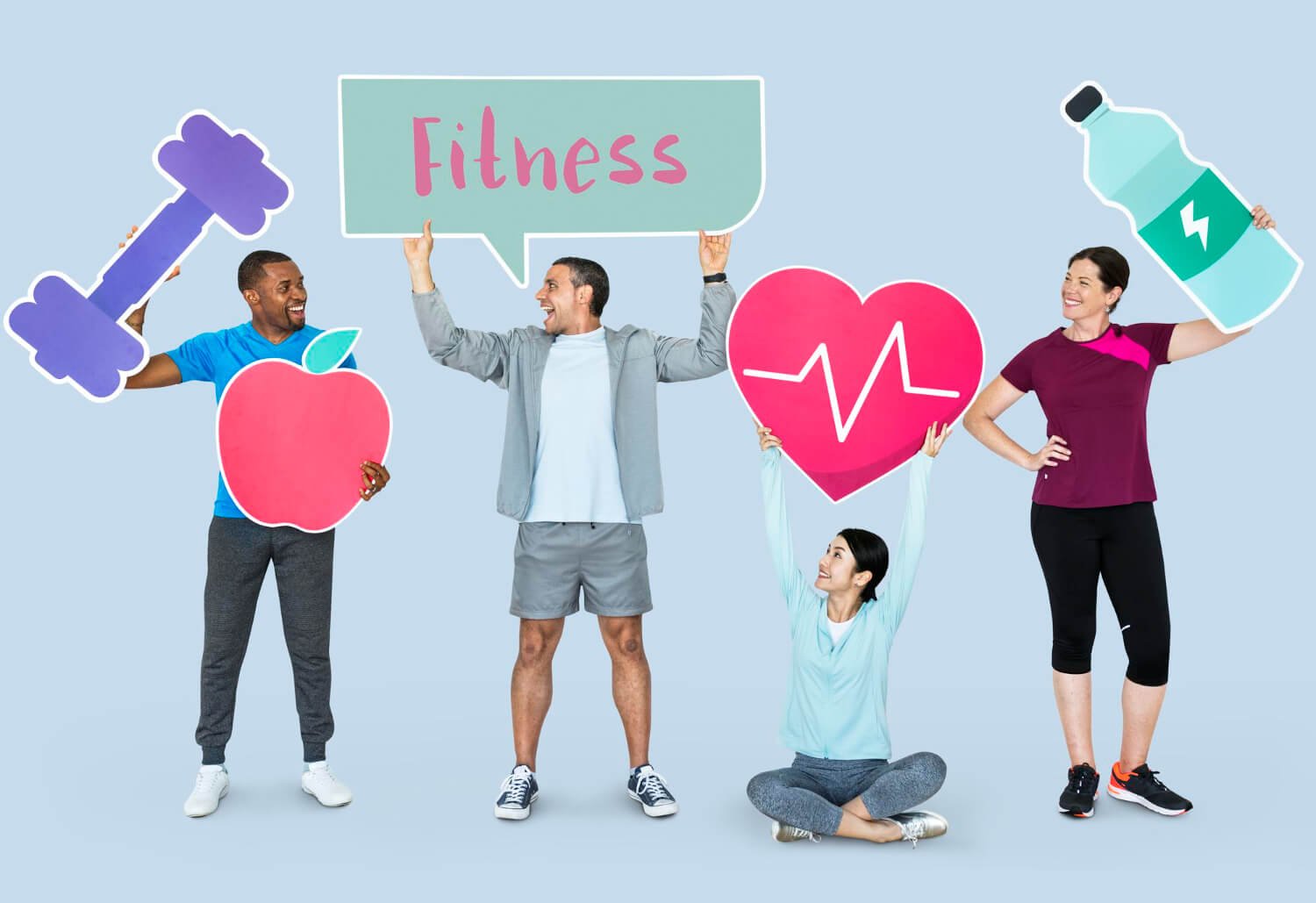
In addition to focusing on specific nutrients and supplements, developing healthy habits is essential for sustainable gym nutrition.
Planning and Preparing Meals in Advance
One of the most effective habits for maintaining a nutritious diet is meal planning and preparation.
By taking the time to plan your meals and cook in advance, you can ensure you have healthy options readily available, even on busy days.
This helps you avoid relying on unhealthy convenience foods and makes it easier to stick to your nutritional goals.
Avoiding Processed Foods and Focusing on Whole, Nutritious Options
Processed foods are often high in added sugars, unhealthy fats, and sodium while lacking essential nutrients.
Aim to minimize your intake of processed foods and focus on consuming whole, nutrient-dense foods.
Include a variety of fruits, vegetables, whole grains, lean proteins, and healthy fats in your diet for optimal nutrition.
Listening to Your Body’s Hunger and Fullness Cues
Tune in to your body’s hunger and fullness signals. Eat when you’re hungry and stop when you’re satisfied, rather than overeating or restricting yourself.
This mindful approach to eating helps you develop a healthy relationship with food and ensures that you nourish your body adequately without unnecessary restrictions.
The Role of Sleep and Stress Management in Nutrition and Gym Performance
Proper sleep and stress management are often overlooked aspects of nutrition and gym performance.
Lack of sleep and high levels of stress can impact appetite regulation, energy levels, and overall well-being.
Aim for quality sleep and implement stress management techniques such as meditation, exercise, or engaging in activities you enjoy.
By incorporating these healthy habits into your lifestyle, you’ll create a solid foundation for sustainable gym nutrition and overall well-being.
- Read Also: Stay Motivated at the Gym: 09 Tips That Work
- Read Also: Gym Hacks That Will Transform Your Workout
- Read Also: How to Use Gym Equipment Safely: A Beginner’s Guide
- Read Also: The Best Gym Workouts for Women: A Guide to Getting Fit and Healthy
Conclusion
Congratulations! You’ve reached the end of our comprehensive guide on gym nutrition tips.
We’ve covered a wide range of topics, from understanding the role of nutrition in gym performance to tailoring your nutrition plan to specific goals and incorporating healthy habits.
By fueling your body with the right nutrients before, during, and after workouts, you can optimize your performance, support muscle growth, and enhance recovery.
Remember the importance of carbohydrates, proteins, fats, and hydration in powering through your workouts.
Additionally, consider the benefits and limitations of supplements, and always prioritize a balanced diet and whole foods.
Developing healthy habits, such as planning and preparing meals in advance, choosing whole foods over processed options, and listening to your body’s hunger and fullness cues, will contribute to sustainable gym nutrition and overall well-being.
Keep in mind that everyone’s journey is unique, and what works for one person may not work for another.
It’s crucial to listen to your body, experiment with different strategies, and seek guidance from professionals when needed.
Now, armed with this knowledge, it’s time to fuel your body right and unleash your true potential in the gym.
Whether your goal is building strength, improving endurance, or enhancing your overall fitness, proper nutrition is the key to success.
So, go ahead and conquer your workouts with confidence, knowing that you have the tools and understanding to eat in a way that supports your goals.
Remember, consistency is key, and small, sustainable changes in your nutrition habits will yield long-term results.
Wishing you all the best on your fitness journey. Stay dedicated, stay motivated, and enjoy the incredible benefits of fueling your workouts with proper nutrition!
FAQs
What foods to eat to fuel your workout?
Opt for foods rich in carbohydrates, such as whole grains, fruits, and vegetables, for quick energy. Include lean proteins, like chicken or tofu, to support muscle repair. Don’t forget healthy fats, like avocados or nuts, for sustained energy.
What is the best fuel to eat before a workout?
The best fuel before a workout is a combination of easily digestible carbohydrates and protein. Consider options like a banana with peanut butter or Greek yogurt with berries.
What is the best way to refuel after your workout?
After your workout, aim to consume a mix of carbohydrates and protein within an hour. Options like a protein shake or a chicken breast with quinoa and vegetables are great choices to replenish glycogen stores and support muscle recovery.
Is it better to drink protein before or after a workout?
Consuming protein after a workout is generally recommended as it aids in muscle repair and recovery. However, both pre- and post-workout protein intake can be beneficial for muscle growth and maintenance.
Why don’t I have the energy to workout?
Several factors can contribute to low energy levels for workouts, including inadequate sleep, poor nutrition, dehydration, or overtraining. Ensure you’re getting enough rest, consuming balanced meals, staying hydrated, and allowing for adequate recovery to boost your energy for workouts.

